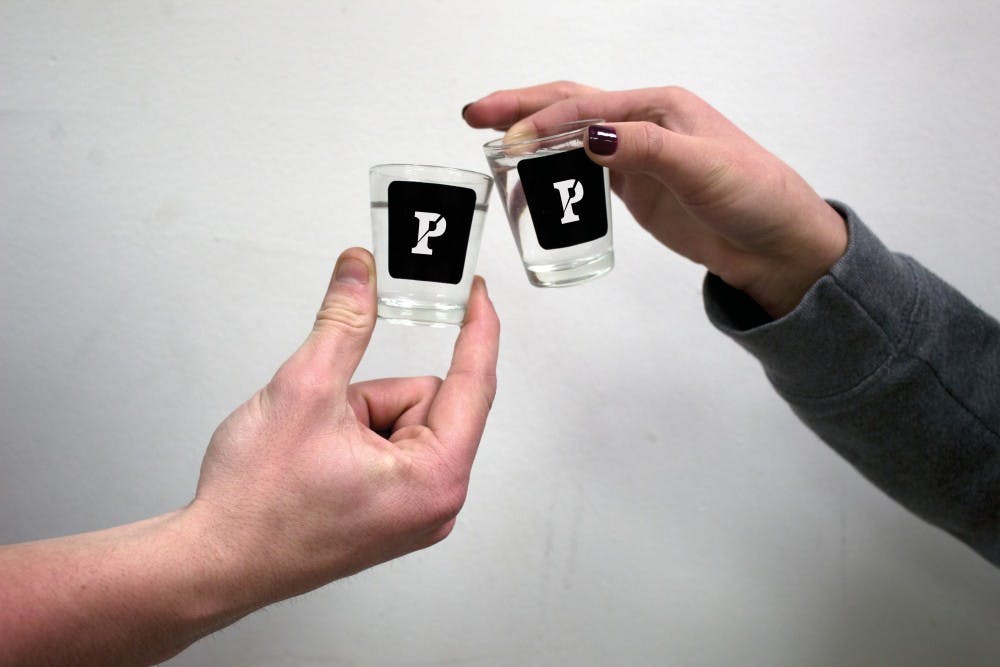Alcohol is everywhere. Fraternities store enough of it to serve hundreds per night. It is sold illegally to minors, exchanged in dorm rooms and was even served at the Penn Museum during one recent exhibit. It may even be in a classroom nearby.
“Culture and Taste of Wine” is a free Spring 2015 preceptorial for seniors led by Engineering professors Sung Youn Gwak, David Pope and Talid Sinno, in which students learn about and taste a variety of wines from different cultures. This wine tasting mini-course is fully funded by the Student Committee on Undergraduate Education, which spends $2,000 annually on the preceptorial.
However, Penn directly funding alcohol consumption is the exception, not the norm. Penn’s funding organizations, such as the Student Activities Council, are typically not permitted to grant funds for alcohol consumption.
“Definitely none of [the funding] is going to BYOs if it’s coming from us,” SAC Chair Renata O’Donnell said. “Basically when you have money that’s granted through SAC, you have a financial advisor who is an adult that is going to help you spend your money. It’s not like students go around with a [credit] card from SAC and do whatever they want.”
SAC and other funding sources on campus allocate funding for specific purposes — such as transportation or speaker honoraria, O’Donnell said. This system, by design, is intended to prevent students from spending money on alcohol and other illegal expenses.
While receiving funding for alcohol directly is rare, receiving it indirectly is not. Many Penn clubs are able to afford alcohol because their budgets are fungible — when clubs receive University funding for transportation, honoraria or to cover other costs, they can reallocate the money they generate from revenue or other less restrictive funding sources towards the purchase of alcohol. Through this lens, alcohol provided by funded clubs on campus is indirectly funded by Penn.
This problem is not unique to Penn. Every school that provides funding for its clubs sees a similar phenomenon. The only way a university could prevent this from happening, however, is by eliminating all funding for student groups — which is not seen as a feasible solution.
Preceptorials aren’t the only instance when Penn funds student alcohol consumption. During the Final Toast on Hey Day, Penn Traditions pays for every student to drink up to two beers while socializing with their classmates.
“The idea is that while the juniors are officially being given senior status, the seniors are being welcomed into the alumni community. It is a huge party with live music, all kinds of food and wine and beer,” Executive Director of Alumni Relations Elise Betz wrote in an email.
Despite the lively Hey Day atmosphere, though, Betz said that students behave responsibly.
“We have never had any problems,” Betz said. “Seniors who are over 21 are adults, and we treat them with the respect and trust that they deserve as adults.”
The Office of Development and Alumni Relations serves alcohol at several other events throughout the year, including Homecoming, the Seniors for The Penn Fund kick-off and a Feb Club event. At these events, student safety is a priority, Betz said.
“It is very controlled. Students must show ID, then are given wrist bands with a tab for one drink per hour of the event,” Betz said. “If a student appears intoxicated when they show up, they are not permitted in the event.”
While some students think it is inappropriate for the University to fund alcohol consumption, even to students who are above the age of 21, others disagree.
“That’s something we should be promoting. A safe environment for drinking and socializing — that’s something I don’t object to,“ College sophomore Leopold Spohngellert said. “Before you enter the adult world, you need to have more experiences with mature drinking.”



